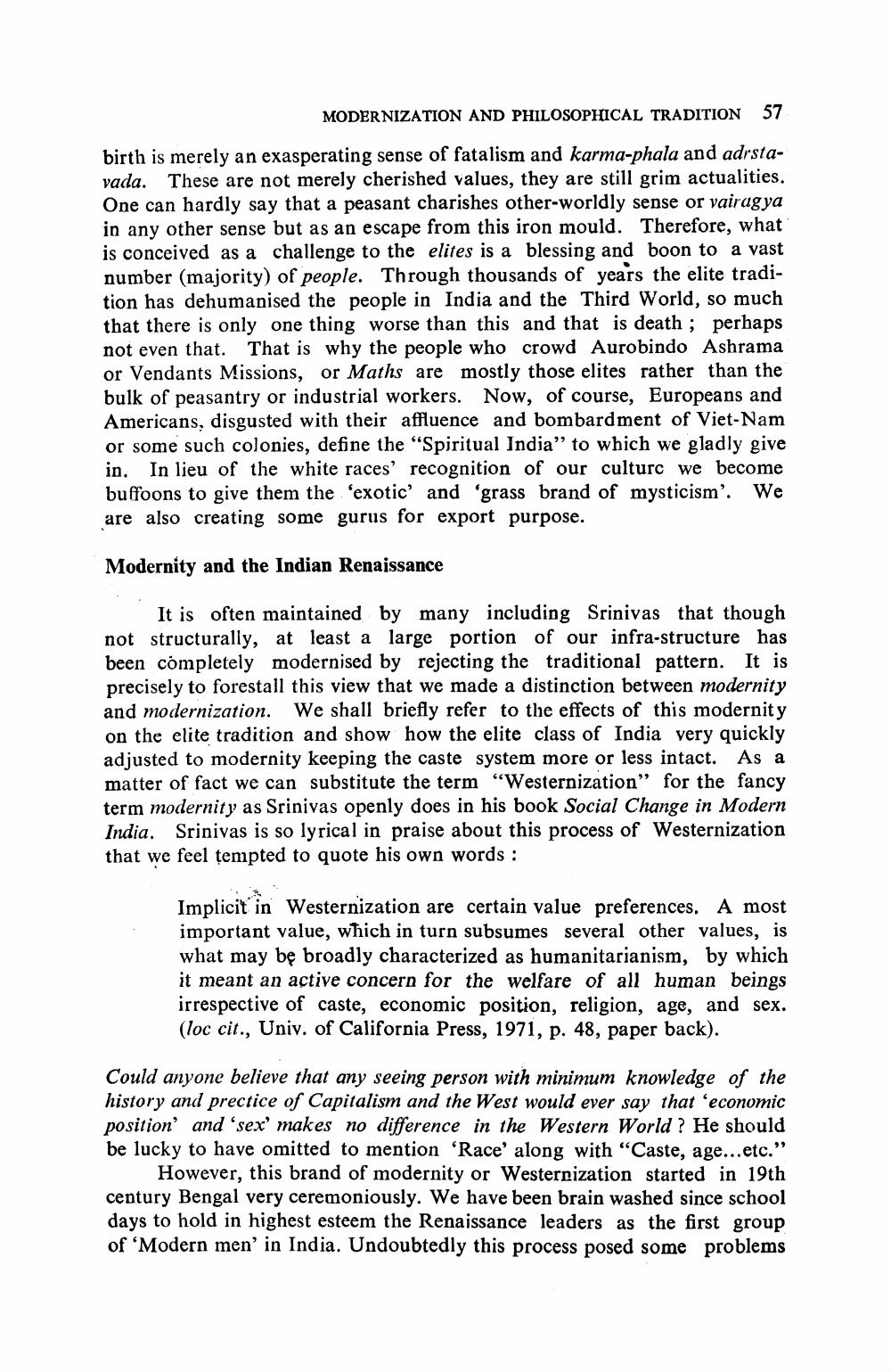________________
MODERNIZATION AND PHILOSOPHICAL TRADITION
57
birth is merely an exasperating sense of fatalism and karma-phala and adrstavada. These are not merely cherished values, they are still grim actualities. One can hardly say that a peasant charishes other-worldly sense or vairagya in any other sense but as an escape from this iron mould. Therefore, what is conceived as a challenge to the elites is a blessing and boon to a vast number (majority) of people. Through thousands of years the elite tradition has dehumanised the people in India and the Third World, so much that there is only one thing worse than this and that is death ; perhaps not even that. That is why the people who crowd Aurobindo Ashrama or Vendants Missions, or Maths are mostly those elites rather than the bulk of peasantry or industrial workers. Now, of course, Europeans and Americans, disgusted with their affluence and bombardment of Viet Nam or some such colonies, define the “Spiritual India” to which we gladly give in. In lieu of the white races' recognition of our culturc we become buffoons to give them the 'exotic' and 'grass brand of mysticism'. We are also creating some gurus for export purpose.
Modernity and the Indian Renaissance
It is often maintained by many including Srinivas that though not structurally, at least a large portion of our infra-structure has been completely modernised by rejecting the traditional pattern. It is precisely to forestall this view that we made a distinction between modernity and modernization. We shall briefly refer to the effects of this modernity on the elite tradition and show how the elite class of India very quickly adjusted to modernity keeping the caste system more or less intact. As a matter of fact we can substitute the term “Westernization” for the fancy term modernity as Srinivas openly does in his book Social Change in Modern India. Srinivas is so lyrical in praise about this process of Westernization that we feel tempted to quote his own words:
Implicit in Westernization are certain value preferences. A most important value, which in turn subsumes several other values, is what may be broadly characterized as humanitarianism, by which it meant an active concern for the welfare of all human beings irrespective of caste, economic position, religion, age, and sex. (loc cit., Univ. of California Press, 1971, p. 48, paper back).
Could anyone believe that any seeing person with minimum knowledge of the history and prectice of Capitalism and the West would ever say that 'economic position' and 'sex' makes no difference in the Western World ? He should be lucky to have omitted to mention 'Race' along with "Caste, age...etc."
However, this brand of modernity or Westernization started in 19th century Bengal very ceremoniously. We have been brain washed since school days to hold in highest esteem the Renaissance leaders as the first group of 'Modern men' in India. Undoubtedly this process posed some problems




